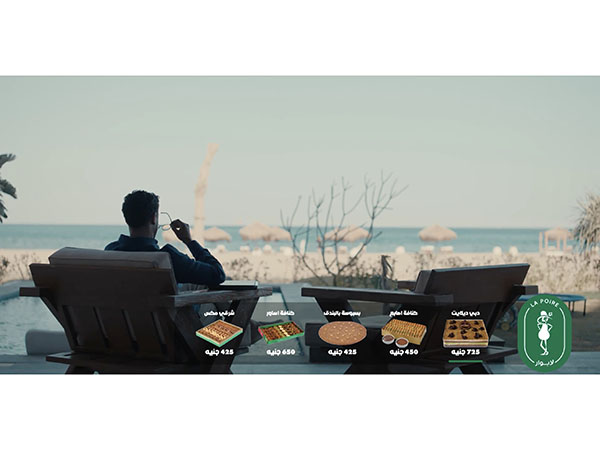News - Digital/Tech
Adapt or die
by Iain Akerman
May 29, 2017

If you’re looking for a traditional job in the region’s advertising industry, you’re in trouble. Caution, concern and austerity have taken hold. Salaries have remained at the same levels for the past few years, agencies are (silently) cutting jobs, and in some cases freezes have been placed on recruitment altogether. Even if you have a job, the chances are you haven’t had a raise or a bonus in years.
“With the current economic situation and tight client budgets, agencies are very cautious when it comes to hiring,” admits Nina El Mourad, regional human resources manager at FP7. “Restructuring is an ongoing process in advertising agencies. Shifting people around and giving them the opportunities to take on new roles and bigger responsibilities is helping to fill a lot of the positions.”
Digital demand
Before you silently weep into your caffè latte, don’t get too depressed. There are jobs out there and what type they are should be self-evident. Digital and data expertise and content creation related roles remain in high demand and this trend is only expected to become more pronounced.
“The continued growth of digital has been a major player in creating new roles which require profiles with specific skill sets and digital and social media expertise,” says El Mourad. “Hence you will come across these roles on LinkedIn, careers websites and other job portals. Add to that the pressure coming from consultancy firms (Deloitte, Accenture, KPMG) and tech-services companies (Adobe, IBM, Oracle) who have created advertising agencies in the last couple of years by acquiring agencies specialised in digital marketing, design and user experiences. They are enhancing their creative expertise and competing with IPG, WPP, Publicis and the like.”
Digital and data directors, digital performance managers, digital creative directors, developers, digital designers, content creators, all are in demand.
“Technology and data are critical and central to our business, but people will remain critical to momentum and creativity as there is no algorithm for human nature,” says Nick Seruwagi, human resources director for the MENA region at Dentsu Aegis Network.
Multi-tasking
Are the days of being a one-trick pony over? Very possibly, particularly for smaller, independent agencies that rely on multidisciplinary employees in a multidisciplinary world.
“The most important thing we look for is someone with an X-factor – a talent that brings a vast array of skills to the table beyond their academic background and experience,” says El Mourad. “A yoga instructor, a musician, a chef, an anthropologist… Imagine you have all of them in a creative agency. Having those different interests and perspectives will help bring diverse ideas and personalities into the agency and build a truly unique agency culture.”
Those with an ability to innovate are cherished and, as Forbes columnist Michael Simmons wrote recently in Medium, that innovation can come from learning and working across multiple fields. Why? Because such an outlook provides an information advantage and thus an innovation advantage.
“The pace of change in our world and the opportunities presented to us require speed, ambition, innovation, agility and an iron will to succeed,” says Seruwagi. “Of course there are specific skill sets that are required for certain roles, but predominantly, we value people who are able to appreciate and contribute to the bigger picture.”
Retention of talent
From an employer’s perspective the main challenge remains not only attracting the best talent, but retaining them.
“A lot of agencies fail to have a holistic approach to the entire candidate life cycle, from attraction through on-boarding and development,” says El Mourad. “This disconnect creates a fractured process where companies over emphasise hiring and under emphasise development, leading to retention issues and creating an endless loop of new recruiting.
“Agencies need to understand how their offerings compare to others in the market and identify what they can do to stand out from the crowd. All leaders in our industry tell you they want to hire young, fresh people who are tech/digital savvy and active on all social media platforms. Let’s face reality, the traditional advertising industry is struggling as never before to adapt to a changing media landscape that these same young people are shaping and who are more attracted and interested to work for Google, Facebook, Apple and tech start-ups.”
The work-life balance appears to be the crux of the issue. Clients are more demanding and employees are spending longer hours at work. Agencies therefore need to be more flexible with their staff and some of the processes and structures within any given agency need to be revised.
“For example, flexible workplace and working hours is something that can keep people healthy and happy, especially after they’ve worked hard on a project/campaign or pitch,” says El Mourad. “The people we are hiring are smart people whom we trust and respect. Letting them work from home or alter their hours based on their workload can make them happy and more productive.”
The future
According to online recruitment site Bayt.com’s ‘Middle East Job Index Survey’, 64 per cent of companies in the advertising industry (that responded to the survey) are planning to hire in the year ahead.
With competition heating up and traditional ad agencies facing increasing competition from consulting and tech-services firms, the need for more data analysts, technologists and content creators will increase. New roles will open up, while the speed of change will mean increased complexity within agencies and jobs.
“Predicting the future is always hazardous and imprecise, but we expect that the market will continue to be most heavily influenced by globalisation and the growth of the digital economy,” says Seruwagi. “In MENA, the employment market is impacted by the geopolitical and economic landscape but most certainly the digital economy will continue to dominate and we expect 2018 to be a vibrant year for the industry. With global GDP expected to grow by 3.4 per cent and the Middle East by 3.6 per cent, both the global and regional outlook is relatively positive.”














